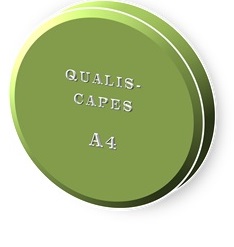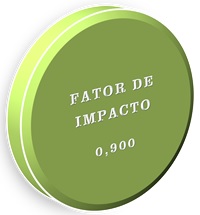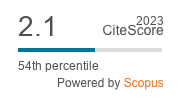IN VITRO SEED GERMINATION OF MANDACARU (Cereus jamacaru DC.)
Palavras-chave:
Cactaceae. Tissue culture. Caatinga. Sucrose.Resumo
Mandacaru (Cereus jamacaru DC.) is a native cactus of Caatinga with a big importance for development sustainable and biodiversity conservation of this biome. The goal of this work was to disinfest and promoter seed germination of this specie in vitro. For this different concentration of the sodium hypochlorite solution and sucrose were evaluated. The experimental design was completely randomized in factorial 5 x 5, with five replicates by treatments. Treatments consisted in five sodium hypochlorite concentration (0.0; 0.5; 1.0; 1.5 and 2.0%) and five sucrose concentration (0.0; 2.5; 5.0; 7.5 and 10.0 g.L-1). The following variables were analyzed: contamination; seed germination frequency and seedling growth. The analysis of variance shown that there was a significant interaction for seed germination at 5% of probability by F test. The 2.5% sucrose supplemented media was the most efficient treatment. On other hand, it was observed that the concentration of sodium hypochlorite soluction at 0.5% was effective in seed disinfestations. The best treatment was at 1.0% of hypochlorite. Regarding the seedling growth there was no significant differences among treatments.Downloads
Downloads
Publicado
Edição
Seção
Licença
Os Autores que publicam na Revista Caatinga concordam com os seguintes termos:
a) Os Autores mantêm os direitos autorais e concedem à revista o direito de primeira publicação, com o trabalho simultaneamente licenciado sob a Licença Creative Commons do tipo atribuição CC-BY, para todo o conteúdo do periódico, exceto onde estiver identificado, que permite o compartilhamento do trabalho com reconhecimento da autoria e publicação inicial nesta revista, sem fins comerciais.
b) Os Autores têm autorização para distribuição não-exclusiva da versão do trabalho publicada nesta revista (ex.: publicar em repositório institucional ou como capítulo de livro), com reconhecimento de autoria e publicação inicial nesta revista.
c) Os Autores têm permissão e são estimulados a publicar e distribuir seu trabalho online (ex.: em repositórios institucionais ou na sua página pessoal) a qualquer ponto antes ou durante o processo editorial, já que isso pode gerar alterações produtivas, bem como aumentar o impacto e a citação do trabalho publicado (Veja O Efeito do Acesso Livre).







